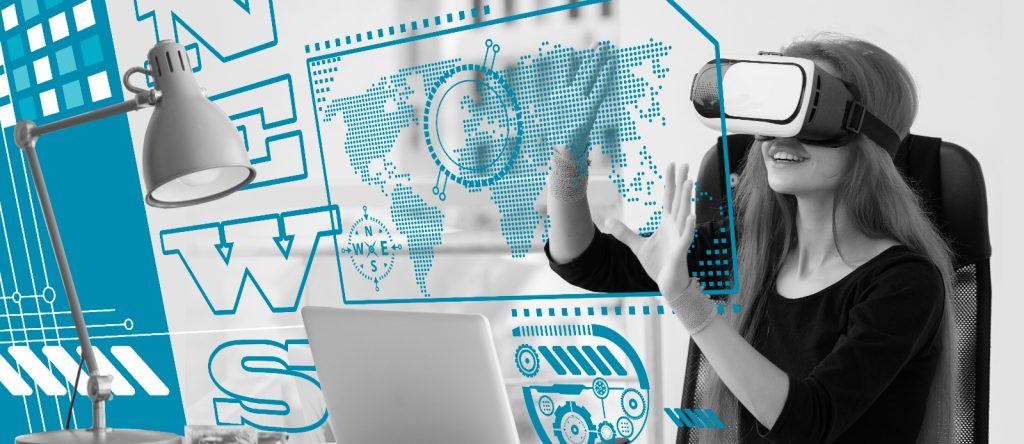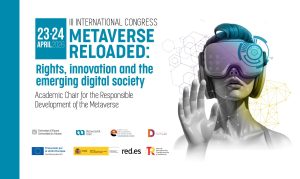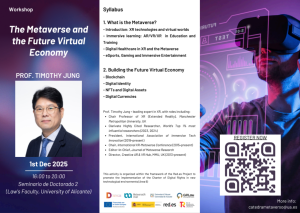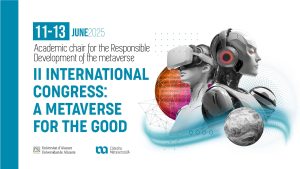
The MetaverseUA Chair Newsletter #3 - November 2023
Hello,
A lot has happened since our last conversation. From unexpected poisonings and the Magnificent Seven convening to even a murder… If keeping up with these rapid developments seems daunting, don’t worry. We’ve compiled all the recent news about IA/Metaverse/Immersive Technologies matters for you to effortlessly stay abreast of the ever-evolving technological landscape. So, without further ado, let’s jump right into it.
It’s a new dAI, it’s a new dawn…
Recall Snow White’s stepmother and her notorious poisoned apple? Compared to what you’re about to discover, she might just look like an amateur.
It turns out that artists are discovering how to feed AIs with incorrect data, compromising the results they produce. Yes, you heard that correctly. A tool named Nightshade has been developed that allows users to introduce imperceptible alterations to the pixels of their creations prior to uploading them online. Consequently, if these modified works are integrated into an AI training dataset, the resulting model may experience chaotic and unpredictable malfunctions. If you’re curious to see what these malfunctions might look like, check out the info in this page (in Spanish).

For sure, the creation of this tool is not a cause but rather a consequence of the predominantly negative stance taken by most artists regarding the use of their works by AI systems. You can see this general attitude in the bunch of legal battles popping up against AI models lately. A notable example is the case brought against Stability AI, Midjourney, and DeviantArt before the Californian courts. Here, the judge dismissed several claims, including those alleging copyright infringement by AI outputs and unfair competition, but permitted the plaintiffs to revise their primary complaint about the use of their images in Stability AI’s training via an amended lawsuit. We will thus have to wait for the outcome of the case, which in any case perfectly exemplifies the existing tensions and the difficulty of striking a balance between the interests of all parties involved.
Also interesting in terms of artists’ position on artificial intelligence are the guidelines published by the MPA (an association that represents the top five U.S. film studios, along with the video streaming service Netflix), which offer a somewhat more flexible and welcoming stance. In their statement, the MPA contends that existing doctrines and principles, like «fair use,» already provide courts and the US Copyright Office with adequate tools to handle emerging AI-related challenges. Additionally, they suggest shifting from a strict, unbending rule that wholly discourages AI usage in the industry, acknowledging the potential beneficial outcomes that it can offer (for example, by training an AI tool with a given artist’s copyrighted material to detect potential infringements). A summary of the guidelines can be found here.
AI news does not stop here, though. In this regard, it is crucial to highlight that the G7 leaders have recently agreed on a set of international guiding principles on AI and a voluntary Code of Conduct for the developers of such technology.
The so-called Hiroshima AI Process includes four key elements:
- An assessment of the primary risks, challenges, and opportunities associated with generative AI.
- The Hiroshima Process International Guiding Principles, applicable to all entities in the AI ecosystem.
- The Hiroshima Process International Code of Conduct for organizations involved in developing advanced AI systems.
- A proposal for collaborative projects to support the creation of responsible AI tools and establish best practices.
If you want to read the text of the proposal in more detail, it can be found here.
Also regarding governmental initiatives for responsible and regulated AI development, Spain’s notable step involves the establishment of a controlled testing environment (commonly referred to as a «sandbox») aligned with the European Artificial Intelligence Regulation. Indeed, through a Royal Decree enacted on November 8, a call has been issued to Spanish companies interested in participating in this initiative. The primary goal of this project is to enhance communication between users and AI system suppliers, as well as between these suppliers and relevant authorities. The aim is to facilitate the exchange of information, promote a deeper understanding of compliance requirements, ensure transparency, encourage the development of reliable systems, and conduct testing within a controlled environment, so as to gather information and elaborate technical guides that can provide assistance in this domain.

And to wrap up this section, it’s worth highlighting OpenAI’s introduction of what are known as ChatGPTs. These are essentially mini versions of ChatGPT, customizable and specialized to assist in specific tasks, whether it’s explaining the rules of a board game or enhancing your writing skills. At the moment, it’s only available to premium users, but the company has confirmed that eventually, the rest of us mortals will also have access to it. The development of such versions will also offer community members business opportunities through the sale of their own specialized models via the platform store, to be launched in the near future.

It was Meta, in the library, with the candlestick…
The Metaverse industry is teeming with tensions, jealousies, and strong passions… and it’s well known how such a combination typically concludes.
Indeed, last October we witnessed a murder. But you can put away your clue notebooks, ‘cause the case seems to be quite straightforward: Meta, upon learning that the developer of the AEI Fitness yoga app was also negotiating with Apple to launch it on competing VR platforms, abruptly terminated their deal just days before it was set to be introduced at Meta Connect.
Now, in response, the app’s developer has filed a lawsuit against Meta, seeking financial compensation for lost earnings and damages. We’ll be keeping a close eye on this.

Regarding jealousies in the Metaverse, there’s another notable case from the Alicante courts to discuss. They’ve adopted an interim measure directing three companies to cease using trademarks that were previously employed in the internal market by another virtual environments developer. The complainant, Uttopion S.L., has held the rights to the «Uttopion» and «Uttopian» trademarks in the EU since 2020. Its lawsuit centered on the defendants’ use of similar names such as «Utopia», «Utopia Avatars», and «Utopian» for offering comparable services. The court noted that these terms are remarkably similar in appearance, sound, and concept to the previously registered IP rights. As a result, the defendants’ use of these names could threaten the uniqueness of Uttopion’s trademarks, potentially leading to confusion for the average consumer. More on the topic, here.
The Planet of the (Bored) Apes
To wrap up with an interesting tidbit… A district judge in the US has recently ruled that Ryder Ripps and Jeremy Cahen must pay $1.57 million to Yuga Labs, the creators of Bored Ape Yacht Club, as restitution and damages. What led to this? They made knock-off versions of the popular NFTs, and the court saw this as a particularly blatant case of trademark infringement. You can find more details on this story here.

Ctrl+Alt+Goodbye!
That wraps up today’s edition, everyone. We trust you found the third issue of our newsletter engaging. Rest assured, we’ll continue our behind-the-scenes efforts to deliver the latest and most thrilling news on all things metaverse!
But before bidding our farewells, we would like to remind you that next week we are holding a webinar with two panel discussions on the technical and legal aspects of interoperability in the Metaverse. You are in time to register here.
We have also launched a Call for Papers for the I International Congress for the responsible development of the Metaverse that we’ll be hosting in June. If you wanna know the details, go here.
May your code run smoothly, and your quests be grand.
Latest news & events
-
 01 Dic 2025 NewsCall for Papers - III International Congress of the MetaverseUA Chair: “Metaverse Reloaded: Rights, Innovation and the Emerging Digital Society”” University of Alicante, 23-24 April 2026
01 Dic 2025 NewsCall for Papers - III International Congress of the MetaverseUA Chair: “Metaverse Reloaded: Rights, Innovation and the Emerging Digital Society”” University of Alicante, 23-24 April 2026 -
 25 Nov 2025 NewsNew Workshop | The Metaverse and the Future Virtual Economy, by Prof. Timothy Jung
25 Nov 2025 NewsNew Workshop | The Metaverse and the Future Virtual Economy, by Prof. Timothy Jung -
 14 Nov 2025 NewsMetaverseUA Chair Newsletter #22 – November 2025
14 Nov 2025 NewsMetaverseUA Chair Newsletter #22 – November 2025 -
 24 Oct 2025 NewsMetaverseUA Chair Newsletter #21 – October 2025
24 Oct 2025 NewsMetaverseUA Chair Newsletter #21 – October 2025 -
 28 Jul 2025 NewsHit play: Recordings from the II International Congress now available!
28 Jul 2025 NewsHit play: Recordings from the II International Congress now available!


